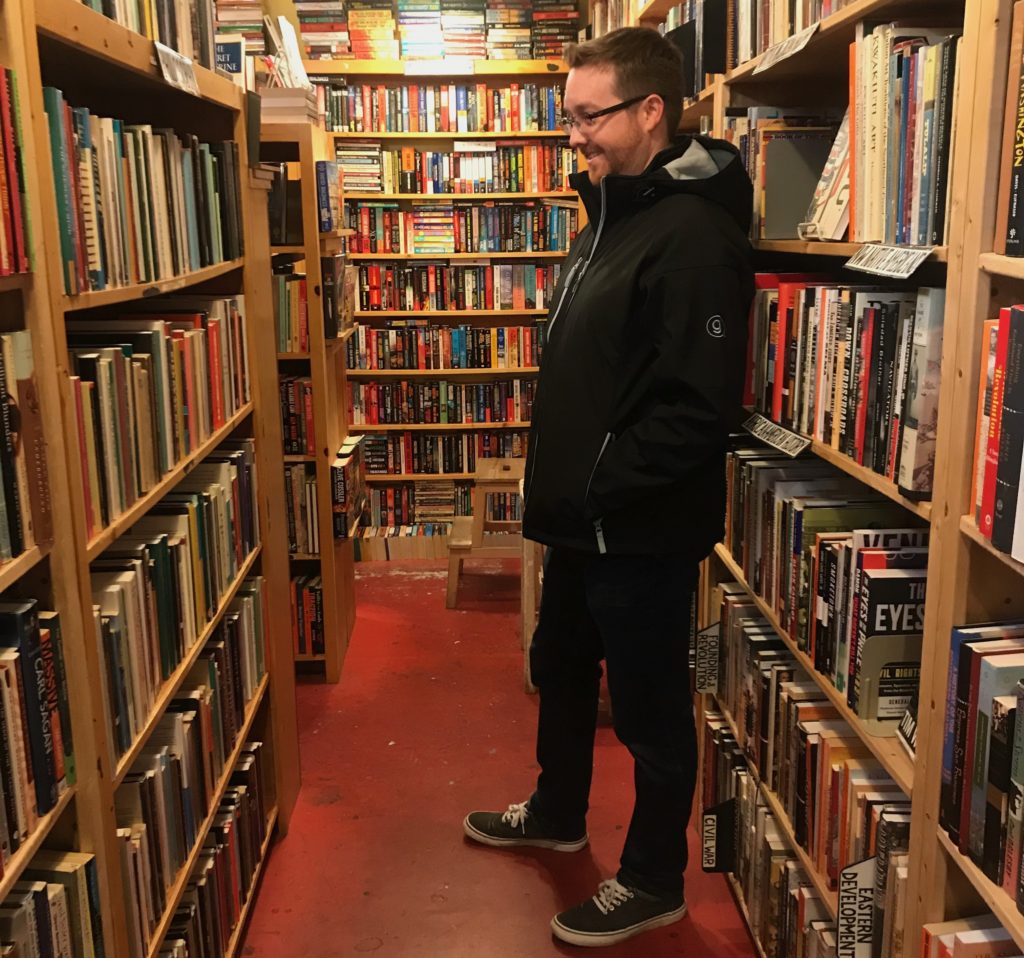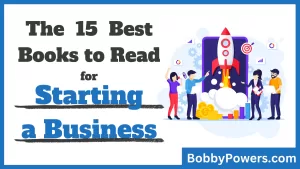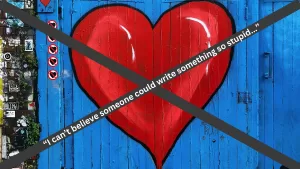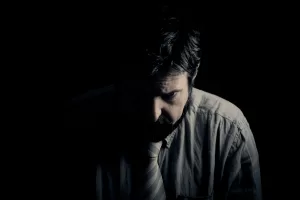I’ve Read Over 700 Books in the Past 10 Years. These Are My 30 Nonfiction Favorites.

In high school, I hated reading. The idea of picking up a nonfiction book for fun sounded preposterous. Thankfully, during my senior year of college, someone recommended Malcolm Gladwell’s book Blink, which lit a literary fire inside me that has only grown with time.
Now, reading is my favorite hobby. I read a lot of business, leadership, and personal development books, but I’ve also fallen in love with fiction and I’m slowly trying to work my way through the top 200 books of all time.
From the 700+ books I’ve read in the past ten years, here are my 30 nonfiction favorites, alphabetized by author’s last name. I included a three-sentence summary for each book, along with an affiliate link from Bookshop.org. (If you purchase one of the books, you’ll support me as well as local bookstores. Win-win!)
American Kingpin by Nick Bilton
From 2011 to 2013, the stormy seas of the Internet were controlled by the Dread Pirate Roberts, a mysterious figure who ran the Silk Road —the “Amazon of crime” that helped users buy illicit drugs, weapons, and even assassins. The kingpin turned out to be mild-mannered computer scientist Ross Ulbricht. This is the story of his rise and his spectacular takedown.
Molly’s Game by Molly Bloom
Through her raw determination, quick wit, and hard work, outsider Molly Bloom infiltrated the most elite circles of power in Los Angeles and New York to run high-stakes poker games for Tobey Maguire, Leonardo DiCaprio, Alex Rodriguez, Nelly, and other celebs. She faced opposition from all sides, including jealous A-listers, the mob, gambling addicts, and the FBI. Molly’s Game is one of the best nonfiction page-turners I’ve ever read.
Quiet by Susan Cain
The western world is biased to value extroversion over introversion, but Cain explains that introverts have many important advantages over their people-person peers. Quiet helped me identify and embrace my inner introvert. It’s also a great wake-up call to how each of us can support introverts and learn from their quiet wisdom.
How to Win Friends and Influence People by Dale Carnegie
It’s ironic that Carnegie is alphabetically after Cain in this list because Carnegie’s teachings fueled America’s extroversion bias. Regardless, this book is a valuable manual for how to put others first, become a better listener, and uplift people with your words and actions. You’d be hard-pressed to find a better book on leadership and communication skills.
→ Read my full review/summary of this book
Bad Blood by John Carreyrou
Carreyrou was the WSJ journalist who first broke the story of fraud, lies, and deception at Theranos, the blood-testing company that became a tech darling worth more than $9 billion. Theranos founder and CEO Elizabeth Holmes wooed a lot of admirers and investors while covering up the truth of what was really happening at her company. While reporting this story, Carreyrou and his sources were stalked, threatened, and sued…but he persisted.
Creativity, Inc. by Ed Catmull with Amy Wallace
Ed Catmull, President of Pixar Animation and Disney Animation, pulls back the covers to reveal how Disney and Pixar foster a culture of creativity by trusting people to solve problems. This book is required reading for anyone looking to empower and encourage their team. It’s also a fascinating look at how success is bred through failure — as long as you learn from that failure.
→ Read my full review/summary of this book
The 7 Habits of Highly Effective People by Stephen R. Covey
With over 40 million copies sold, Covey’s mega-bestseller is arguably the most well-known self-help book of all time. The 7 Habits argues for win/win thinking and proactivity to improve yourself and build better relationships. Its takeaways are applicable for work and life, and many of Covey’s aphorisms have become ubiquitous, including “sharpen the saw” and “begin with the end in mind.”
Grit by Anglea Duckworth
Duckworth’s research compellingly posits that grit — which she defines as passion plus perseverance — is a better predictor of future success than talent. I was inclined to agree with that concept before reading Grit, and Duckworth pushed me over the edge. Her book inspired me to develop more mental toughness and seek out difficult challenges.
Thinking in Bets by Annie Duke
Thinking in Bets is an exposé of our illogical thinking patterns, told by a poker pro schooled in graduate-level psychology. Duke shares her experience studying human behavior at high-stakes poker tables. Her work is a timely explanation of why we succumb to fake news, “Monday morning quarterbacking,” and various cognitive fallacies.
→ Read my full review/summary of this book
Mindset by Carol Dweck
After the fourth or fifth time I read an author mention Carol Dweck, I asked myself why I was bothering to read what amounted to secondary research: authors quoting Dweck. I finally went straight to the source and picked up a copy of her book Mindset. Dweck blows the doors off IQ bias and explains why hard work and continuous improvement are more important than innate traits like static intelligence.
→ Read my full review/summary of this book
Catch and Kill by Ronan Farrow
Farrow led the journalistic charge in taking down Harvey Weinstein. In this book, he exposes not only Weinstein’s heinous acts, but also the elaborate plot at the highest levels of media, politics, and espionage to cover it all up. I couldn’t believe how many people helped protect Weinstein through it all.
Tribe of Mentors by Tim Ferriss
Similar to Ferriss’s book Tools of Titans, this book is a compilation of life advice from dozens of stars in their respective fields. Each mentor’s advice is fascinating and unique. My favorite segments were from entrepreneur Naval Ravikant, chess champion Maurice Ashley, and poker star Daniel Negreanu.
Give and Take by Adam Grant
In this book, Adam Grant shows why he’s quickly become one of the top minds in business and psychology. He shares stories of high-powered corporate attorneys, insurance sales representatives, teachers, and others who have built a lifestyle through giving. The stories are compelling, the data is surprising, and the conclusions are inspiring.
Think Again by Adam Grant
If everyone in America read this book, our political discourse would be in a MUCH better place. Grant encourages readers to question what they think they know and to debate ideas with intellectual curiosity and openness. It’s the type of book that needs to be read and re-read because it flies in the face of so many things we’ve unconsciously learned that need to be rewired in our brains.
→ Read my full review/summary of this book
Ego Is the Enemy by Ryan Holiday
I love books that teach tangible skills, but books that make me contemplate my moral fiber and strive to improve as a person are even better. Holiday’s book Ego Is The Enemy is absolutely a book that made me want to develop my character. Incorporating ideas from ancient and modern philosophers, war generals, politicians, and business leaders, this book challenges readers to not let pride stand in the way of attaining or repeating success.
→ Read my full review/summary of this book
The Hard Thing About Hard Things by Ben Horowitz
Venture capitalist and former CEO Ben Horowitz believes that executives should shoot straight with their teams, and he models that behavior in this hard-punching, brash, honest guidebook for leaders and startup CEOs. Horowitz opens with the sentence, “Every time I read a management or self-help book, I find myself saying, ‘That’s fine, but that wasn’t really the hard thing about the situation.’” Then he proceeds to talk about all of the most difficult aspects of leadership: layoffs, demoting and firing friends, running out of cash, losing your best employees, etc.
→ Read my full review/summary of this book
Leonardo da Vinci by Walter Isaacson
Leonardo painted masterpieces, designed weapons, introduced new ways of drawing geometric figures, sketched ideas for a flying machine, and also dabbled in botany and astronomy. Learning about Leonardo’s endless curiosity gave me license to unleash my childlike sense of wonder. Since reading this book, I now pay much more attention to the world around me, because as Leonardo said, creativity requires observation plus imagination.
The ONE Thing by Gary Keller and Jay Papasan
In a world of to-do lists and urgent items, it’s easy to tackle insignificant work rather than working on the tasks that will truly move the needle. Thankfully, there’s a great book to re-center us on what’s most important: The ONE Thing. This is one of the books I’ve most gifted to other people, and everyone who’s read it has sworn by this book’s ability to improve their productivity.
→ Read my full review/summary of this book
On Writing by Stephen King
There are a lot of writing advice books out there, but this one is the best. Not only is King one of the most successful writers on the planet, but he’s also pushed literary boundaries for decades. In this book, he uses stories from his childhood and writing career to teach brilliant lessons to awakening authors.
→ Read my full review/summary of this book
Steal Like an Artist by Austin Kleon
The fundamental premise of this book is that every creative person is essentially a thief. Any artist, musician, or writer worth a damn has stolen ideas from others and weaved those ideas into their own work. Kleon explains why artistic theft (as long as it’s properly credited) is a beautiful thing.
→ Read my full review/summary of this book
Bird by Bird by Anne Lamott
Lamott writes truthful, vulnerable stories about topics that others don’t want to acknowledge. She believes an author’s best tool is the truth. In Bird by Bird, Lamott offers advice for how to ignore your critics, write from the heart, ruthlessly edit your work, and find stories in the everyday events of life.
→ Read my full review/summary of this book
The Devil in the White City by Erik Larson
The 1893 Chicago World’s Fair was the stage for feats of architectural wonder as well as diabolical acts of crime. Serial killer H.H. Holmes used the Fair as a chance to lure victims to a hotel he outfitted for his cruel acts. Larson blends historical nonfiction with artistic license in this historical nonfiction tale, similar to Truman Capote’s In Cold Blood.
Flash Boys by Michael Lewis
I’ve enjoyed all of Lewis’s books: Moneyball, The Big Short, Liar’s Poker, etc. But I think this one is his best because it made such a splash on Wall Street (in addition to being a remarkable true story). Lewis exposed that a small group of insiders had figured out how to “front-run” trades ahead of standard investors, rigging the stock market for their own financial gain.
Deep Work by Cal Newport
I often get sucked into more immediate, tangible tasks that give me the satisfaction of crossing things off my list, but this book helped me reconfigure my priorities. Newport articulates the importance of “deep work” and offers guidelines for how to manage “shallow work” (responding to email, slack, etc.). It’s required reading for anyone who wants to resist the tyranny of their inbox.
→ Read my full review/summary of this book
Factfulness by Hans Rosling with Ola Rosling and Anna Rosling Rönnlund
Factfulness is poignant, hopeful, and timely. It’s a jaw-dropping rebuttal of many myths we’ve heard through the years about poverty, education, and world demographics. For this book, professor and researcher Hans Rosling teamed up with his son and daughter-in-law who co-founded the Gapminder Foundation, a nonprofit dedicated to using simple, visually appealing data to squash untruths about the world.
→ Read my full review/summary of this book
Becoming Steve Jobs by Brent Schlender and Rick Tetzeli
I’ve read multiple biographies about Steve Jobs, including the famous bestseller by Walter Isaacson. This one is my favorite because it paints Steve Jobs in shades of gray: hard-working genius, impatient asshole, caring human, and passionate creator. It’s a remarkable view into Jobs’s life written by someone (Brent Schlender) who knew Jobs personally for over 25 years.
Letters from a Stoic by Seneca
I’ve been reading a lot of Stoic philosophy recently, and this is one of the hallmark texts. Seneca explains how to focus on only those things within your control, how to spend your time wisely, how to handle tough times, and how to build mental toughness. It’s a long read, but it’s worth it.
The Signal and the Noise by Nate Silver
Silver is the statistician who correctly predicted how 49 of 50 states would vote in the 2008 presidential election, then followed that up by nailing all 50 states in the 2012 presidential election. Although he didn’t fare as well in the 2016 election (no surprise there), he’s still the only statistician I know who can make statistics sexy. Silver’s book The Signal and the Noise explores realms as diverse as finance, meteorology, poker, and politics — all infused with Silver’s witty insight and unconventional ideas.
Just Mercy by Bryan Stephenson
Growing up, my history classes focused on slavery and racism as “historical” American problems, but those issues are still here today and this book exposes that truth. Stevenson is a Harvard law graduate who’s dedicated his life to fighting discrimination in the U.S. justice system. Just Mercy is a tragic but important book about one of Stevenson’s defendants.
Educated by Tara Westover
Westover graduated with a Ph.D. from Cambridge in 2014. Based on her pedigree, you’d never guess she was raised in a family who feared the government, refused medical treatment, practiced abuse and neglect, and spurned education. This book shares her intriguing story.
If you’re willing to share in the comments section, I’d love to hear how many of these books you’ve already read, along with what you thought about them. I’m also always looking for book recommendations, so feel free to share your favorite nonfiction reads too!



